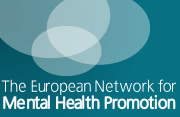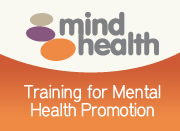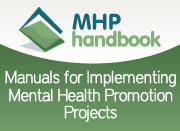Tools
- Utilities:
- Print this page
- Send this page
- Font size:
- Increase font size
- Decrease font size
TeenScreen Program
22/12/2008
Tool Information
Tool Description
The Columbia University TeenScreen Program is a national mental health and suicide risk screening program for young people. TeenScreen is committed to making the mental health and well-being of youth a national priority and to ensure that every parent is offered the opportunity to have their teenager receive a voluntary mental health check-up (required both parental consent and youth assent for participation) for early identification of mental health problems. The program uses a questionnaire and interview process to determine if a teenager may be at risk for depression, suicide or other health problems – it is not a diagnosis, and treatment decisions, if any, are always left to parents and guardians.Tool Characteristics
Application in the Field: General use in one country
Tool mainly used in: United States
Stage of Development: Well established
Evaluation and Research: Studies/Technical Data available
Beneficiary Involvement in Design: Active participation clearly described



